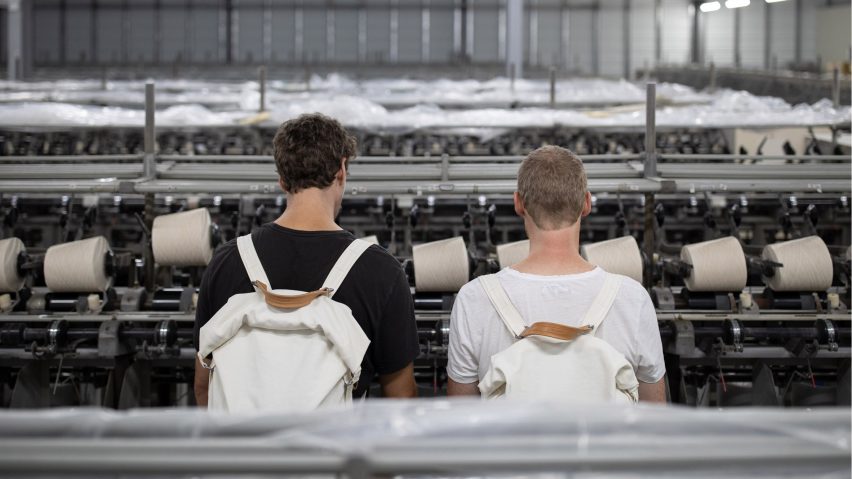
Qwstion maximises the positive environmental impact of its work through collaboration
The creative director and co-founder of Qwstion, Christian Kaegi, sheds light on why the sustainable Swiss brand is infiltrating the production chains of major companies in this interview for VDF x Alcova.
Founded in Zurich in 2008, Qwstion specialises in sustainable backpack design, and also develops eco-friendly plant-based materials with the goal of helping to establish a circular economy.
Kaegi told Alcova that in order to make the positive impact of its work more measurable, one of the brand's main strategies is collaboration. All of its production processes and material innovations are accessible for use by larger companies to make their own supply chains more environmentally responsible.
"Our strategy is to maximise the positive impact our material developments can have by making them available to any brand or company that wants to improve its sustainability," Kaegi said.
"We are a small brand, so even if our products and processes are sustainable, the impact will always be limited," he explained. "By making our processes available to others, however, we can enable large major brands to use more sustainable materials and have larger ecological effects."
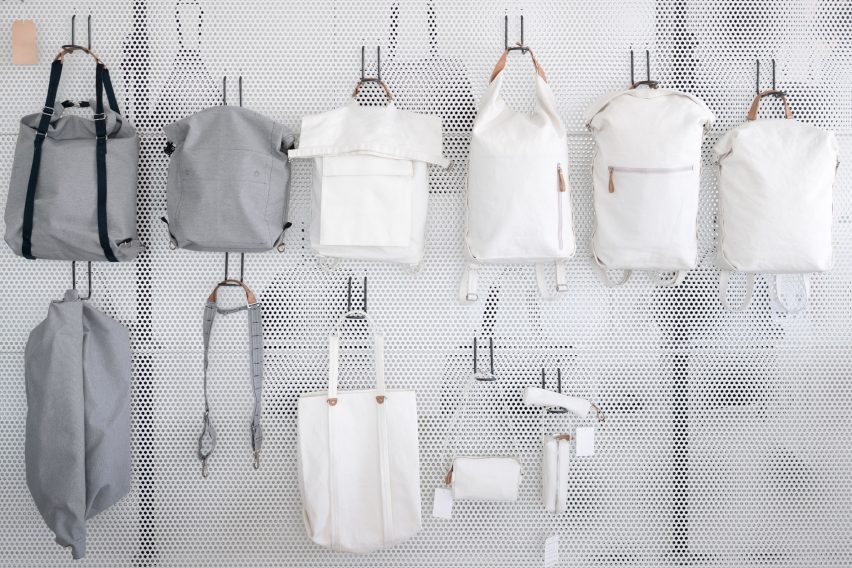
An example of this concept is demonstrated by the brand's development of Bananatex, a durable and sustainable textile made entirely from banana plants. Qwstion has recently spun Bananatex into its own company and it is now collaborating with brands and companies internationally.
"We are currently in discussion with numerous global brands from diverse industries, including furniture, automotive, tech, and fashion, who are all interested in employing our material," said Kaegi.
"There is a potential for Bananatex across a whole range of applications that require a textile with a certain amount of durability and other technical capacities."
Qwstion was due to exhibit its products and material innovations as part of this year's presentation by design platform Alcova during Salone del Mobile.
In light of the event's cancellation due to coronavirus pandemic, Kaegi joined the Alcova team for an interview instead, in which he introduces the brand, its ethos and work.
VDF x Alcova
Exhibitor: Qwstion
Website: www.qwstion.com, www.bananatex.info
Email: [email protected]
Alcova: The current tragic circumstances pose huge challenges, but also open up new perspectives. Is there a new appreciation for the things we use and surround ourselves with, the stories they tell and the values they stand for?
Christian Kaegi: Definitely. The question we need to ask ourselves right now is: what do we really need? We as designers have spent the last five years incubating a number of brands based on values of sustainability and ethical consumption. But as in so many aspects of life today, there is a strong polarisation of attitudes.
Those who have a conscious approach to how and what they consume have become even more conscientious. The real challenge is how to get such questions to resonate with a much broader segment of society in the coming years.
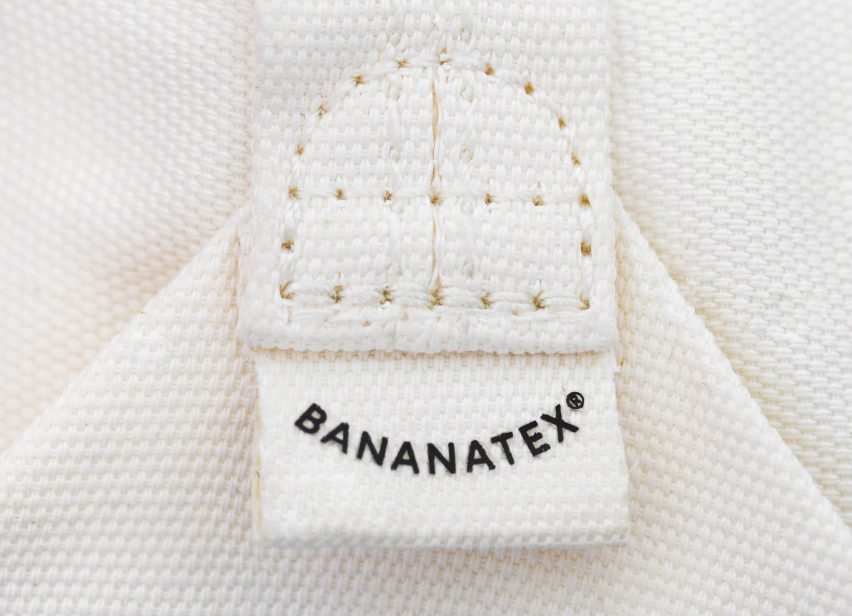
Alcova: What did you set out to achieve when you founded Qwstion?
Christian Kaegi: After graduating as an industrial designer and co-founding design studio Aekae right out of school, I had many questions as to where the world was heading and how products were designed and manufactured. I was interested in designing in a holistic way, starting from the very beginning, the material itself.
The standard role of consultant for clients did not provide an opportunity to do so in a comprehensive manner, so I co-founded Qwstion as a platform to search for new answers. Qwstion is a brand for everyday bags, through which we try to question current material norms and applications. One crucial factor in our path towards a circular economy has been designing our own plant-based materials to replace plastics. We want to act responsibly towards nature and our community, while remaining profitable as a business.
Alcova: One strategy implemented by your company, or companies, is not simply to act independently from the major brands, but to collaborate with them, to infiltrate their production chains and introduce the values and processes you've established in your own work. Can you tell us about that?
Christian Kaegi: That's a really important strategy, and I see that as a major possibility to actually have a measurable outcome. We are a small brand, so even if our products and processes are sustainable, the impact will always be limited. By making our processes available to others, however, we can enable large major brands to use more sustainable materials and have larger ecological effects.
We have now spun Bananatex off into a separate company, and we are currently in discussion with numerous global brands from diverse industries, including furniture, automotive, tech, and fashion, who are all interested in employing our material.
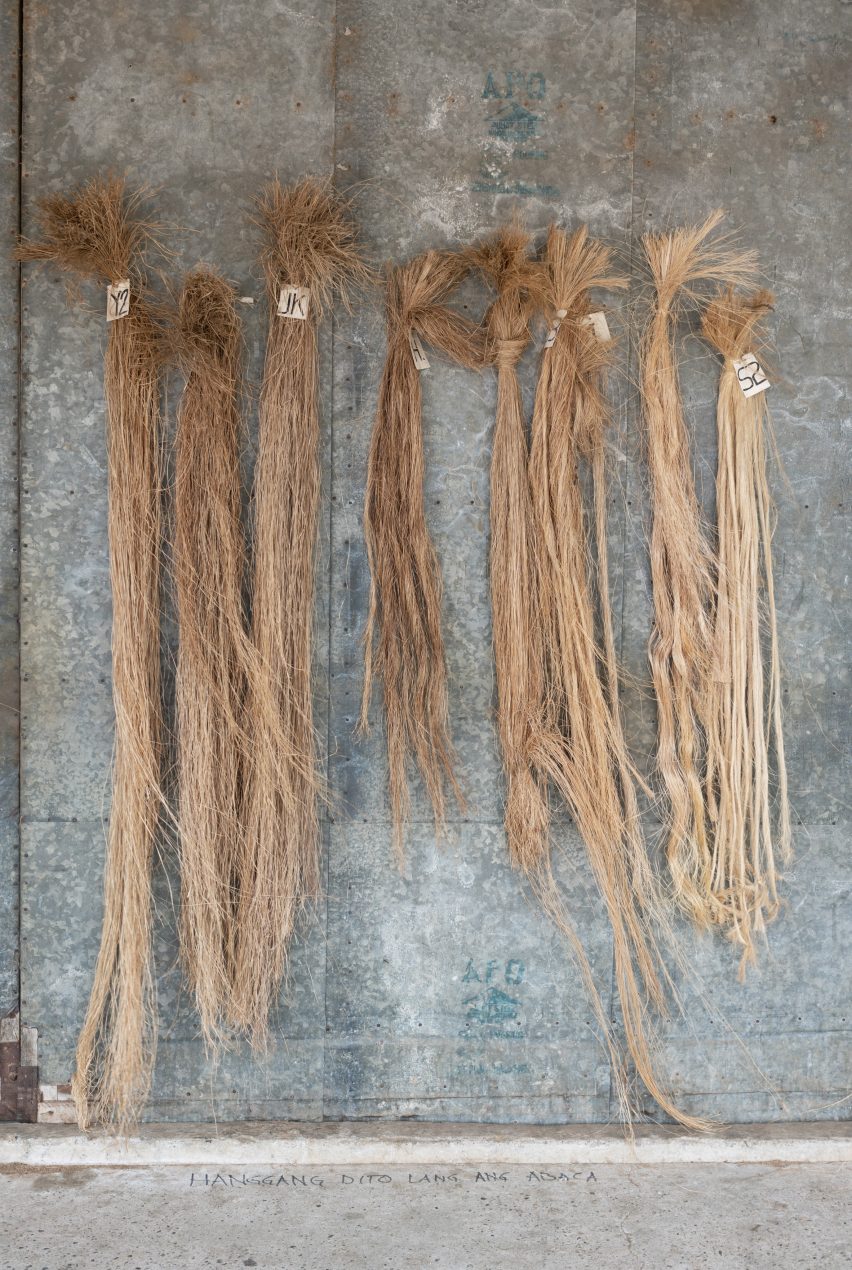
There is a potential for Bananatex across a whole range of applications that require a textile with a certain amount of durability and other technical capacities. Our strategy is to maximise the positive impact our material developments can have by making them available to any brand or company that wants to improve its sustainability.
Alcova: At the same time, there's another side to your strategy, which is thinking about new aesthetics and other kinds of possibilities that can be unlocked by these innovative materials. Do you think the circular economy could have its own visual language or aesthetic canon?
Christian Kaegi: Yes, definitely. If you take a radical approach to sustainability, then as a consequence a new aesthetic will emerge. If you look back to the modernist movement in the 1950s and 1960s, the ideas of letting the materials speak for themselves, reducing mass, simplifying shape and form – these principles had a significant impact on aesthetics. We believe this is equally relevant today and will be part of becoming more sustainable as a society.
Alcova: As someone whose career has already spanned multiple companies, what is your perspective on the marketplace? Will you change business models or adapt in other ways to current conditions?
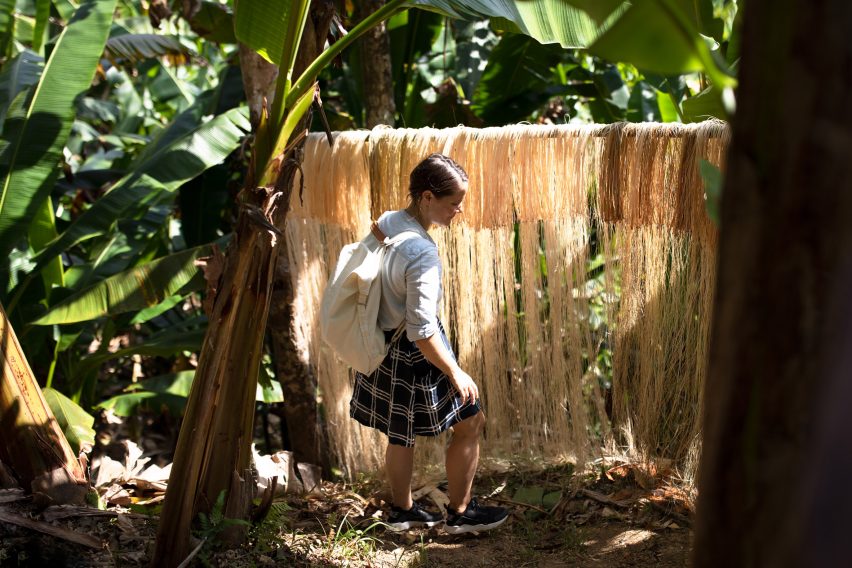
Christian Kaegi: In the context of the circular economy, the question of ownership needs to be re-evaluated and will have an impact on our business model. Another significant question remains open: how will physical retail develop in years to come? There has been an ongoing shift from offline to online, and in the past three to four years, we have been working with many retail partners that had to close their shops due to financial pressure, perhaps because they were unable to adapt quickly enough to online business.
Due to the current crisis, that one side that has been even further challenged because most people were unable to visit stores and could only buy from home through online platforms. At the same time, people have been questioning their consumption even more than before, so the entire sector remains an open question for us. We have our own stores, which are experimental spaces in which we try new things, for instance, experimenting with possible forms of interaction between customers and brands in the future. We see these spaces as testing grounds for ideas. So we are working on new developments for our own company in that regard.
Alcova: Aside from the business aspect, what did the cancellation of this year's Salone del Mobile mean to you?
Christian Kaegi: We are social beings, and the present circumstances have in many ways stripped that element of life away for an extended period of time. I see that all around me – that what people are missing the most is social interaction, human interaction, friends, family. That's what we really need in the end.
I think that those platforms that create opportunities for social interaction will definitely remain relevant. In many ways this crisis has actually demonstrated how relevant they are. At the same time, there may just be too much on the calendar. Now that we have a bit of distance and a bit more slowness in our lives, we are also becoming more aware of what's really important.
Virtual Design Festival is the world's first online design festival, taking place on Dezeen from 15 April to 10 July 2020.
Alcova is a Milan-based platform established by Italian practices Space Caviar and Studio Vedèt, which champions independent design through a programme of exhibitions. The team consists of
Valentina Ciuffi, Joseph Grima, Martina Muzi, Tamar Shafrir and Marco De Amicis.
The VDF x Alcova collaboration presents interviews with eight studios that were set to be featured at the platform's presentation during Salone del Mobile this year.
